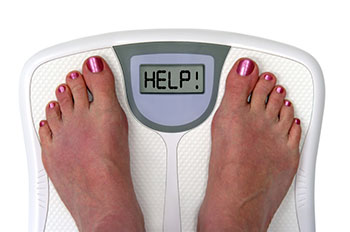Eating Healthy: the Basics
1. What is a healthy breakfast?
2. What is a healthy lunch?
3. What is a healthy dinner?
4. How much should I weigh?
5. How many calories should I be eating?
6. What is the best way to lose
weight?
7. How can I keep my weight loss
goal in mind and stay motivated?
8. What is a healthy weekly weight loss?
9. How to set weight loss goals and make
them happen
10. How to keep a food diary, and
why it is essential to successful weight loss
11. Are all fats bad for you?
12. Are saturated fats bad
for you?
13. Are
unsaturated fats good for you?
14. Are carbohydrates bad for you?
15. Is fiber good for you?
16. How to read nutrition/food labels
17. How to plan your weekly menus
18. Why should I eat less salt?
19. What
do the sodium (salt) numbers mean on food labels?
20. What is The Mediterranean Diet?
21. Why eating vegetables is good for
you
22. Why eating fruit and nuts
is good for you
23. Why are cereals and whole grains good for you?
24. What are legumes, and why are they good for you?
25. Why is eating fish good for you?
26. Which fats and oils are good for
you?
27. Are dairy products good for you?
28. Which meats should I not eat?
29. Is drinking alcohol good for
you?
30. Is it important to measure your
ingredients?
31. Are snacks good for you?
32. How to choose the right portion size
33. Can you lose weight with a smaller
plate?
34. Eat healthier by cleaning out your
pantry
35. Which oils and fats should I keep in my pantry?
35. Which oils and fats are good for you - and when should I use them?
36. Which carbohydrates are good for you?
37. What is the best chicken or turkey for you?
38. Are dairy products good for you?
39. Which nuts and seeds should I eat?
40. Is red meat like beef or pork bad or good for you?
41. Is eating dessert good or bad for
you?
42. Is drinking soda bad for you?
43. Is drinking coffee bad for you?
44. How can healthy food taste good? Part 1
45. How can healthy food taste good? Part
2
46. How to eat healthy while eating
out
47. Are vitamins and supplements necessary
to eat healthy?
48. How to eat healthy while traveling
Eating Healthy: the Basics
How can I keep my weight loss goal in mind and stay motivated?

There are a lot of fantastic reasons to make a change in what and how you eat. Everyone has their motivation.
Looking at the most successful titles in the Diet and Nutrition section of the bookstore, the main reason that folks want to change how they eat is to lose weight. O.K., that's alright, but for most people that means they want to lose a lot of pounds really fast. The concern is that this has been shown time and again to not be effective because you'll gain it all back, plus some. The landscape is littered with failed diet books and celebrities who've lost and gained and lost and gained. So much has been written proving that many diets simply offer users only a yo-yo pattern of weight gain and weight loss.
This is why I would like for you to consider exactly what you are looking to accomplish by changing how you eat.
All successful projects work because they have a goal to aim at. This is true whether it is saving money, building a house or eating better. For most folks going on a diet is about the goal of losing weight. They don't often explore their motivation for that, however. Interestingly, one of the most popular reasons folks give for going on a diet is to be healthier. Second most popular is the positive effects on appearance and well being.
As you are beginning to make changes, it's important for you to figure this out for yourself. What exactly do you want to accomplish? Write your goals down. It's not silly to put a post-it note on your fridge, in your wallet or stuck to the bathroom mirror that says:
I want to feel better
I want to lose weight
I want to be healthier
I have a goal weight in mind
I have a date in mind for reaching my goal
These sorts of reminders to yourself have been shown to help you define your motivation and keep that goal at the front of your mind.
